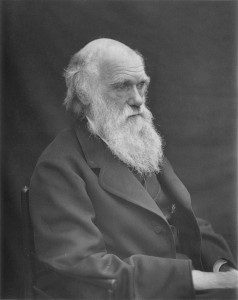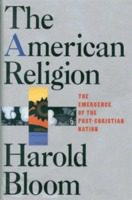
Seemingly incompatible doctrines can actually reinforce each other. I’m thinking of Darwinism and gnosticism here. Whatever makes me suppose so? Allow me to ruminate a little.
Darwinism, of course, is the theory of origins formulated by Charles Darwin. Conventional wisdom has it that Darwin gave us the theory of evolution. But the notion that new species evolve from other species wasn’t all that new. Darwin’s novel contribution was natural selection, the supposal that some species succeed while others fail because they are better fit to survive in their given environments.
With natural selection failure is final. That’s why we have the term, survival of the fittest.
I know there is a lot more to it than that, but I’m not looking at the science. I’m interested in the impression the science has made upon the popular imagination.
Setting the truth of natural selection aside, it has simplicity going for it. It appears to explain a great deal. Even when natural phenomena offends you can pull out the Darwin card. Rape? Natural selection. Genocide? Natural selection. (It isn’t all negative. I’ve heard arguments for altruism that appeal to natural selection.)
But for many people natural selection seems cruel and wasteful. And ignoring the never-ending controversy surrounding the interpretation of just how God made the world in Genesis one, there is the recurrent phrase after each day of creation, “And God saw that it was good”–what to do with that? Nature “red in tooth and claw” doesn’t look very good to many people.
Enter gnosticism
Gnosticism disagrees with the God of Genesis one. Gnostics believe Darwin confirms a suspicion–we don’t need a doctrine of Hell, we’re already there. This is the sphere of disease, pain, death, and heart burn.
In part, this why gnosticism has made something of a comeback in our day, even with Joel Osteen and his ilk. For all the health and wealth stuff, its emotivism smacks of gnosticism. What matters is how you feel about yourself.
Here is something to remember. The ancient gnostics fell into two camps: ascetics and libertines. The first group is sometimes associated with the self-flaggalating excess of monasticism. But Augustine, recall, was a Manichee, a species of gnostic. And he was definitely a libertine. Give the body what it wants, what’s it matter? is the libertine gnostic’s motto.
This impenetrable wall between body and soul appeals to many people. No effort is needed to hold things together. Just write off the the material world. If you want meaning, look within. That’s where you’ll find insight.
And this is where the term gnosticism comes from. The Greek gnosis means “knowledge”–but the knowledge we’re talking about here is not public or scientific, it is secret knowledge that can only be conveyed inwardly, without words or images. It just wells up from some deep inner place where the divine does the talking.
Gnosticism is at home in the modern world. It’s tolerant and portable and lends you significance in a world that reduces you to a machine made of meat. But it has one big problem: it is irresponsible.

I have some first hand experience when it comes to this.
My father was an academic, a scientist actually, during the 60s. We lived near college campuses most of my childhood. It was a crazy time, something like our time, with lots of experimentation when it comes to religion and spirituality.
Although my folks were Episcopalians (my mother, very anglo-catholic) they dabbled in all sorts of stuff. My father was ABC it seems to me in retrospect–anything but Christianity. He experimented with Mormonism, Unitarianism, even had a stint with the Bahai’s. He ended up in Scientology and he is there to this day.
It took Harold Bloom’s book, The American Religion to help me see what this hodgepodge of religions have in common–a gnostic thread runs through them. I won’t go into detail here, you’ll just have to trust me. Better yet, just read Bloom’s book.
But all of my father’s spirituality couldn’t keep him from deserting his family on a cold January day in an apartment without heat. He took off one morning and never came back. I was eleven years old.
And as I’ve thought about it, if I were a gnostic myself, there wouldn’t be much I could say to condemn him when it comes to his actions.
And this is why I am not a gnostic, and could never be one. And I’m not too keen on Darwin either.












